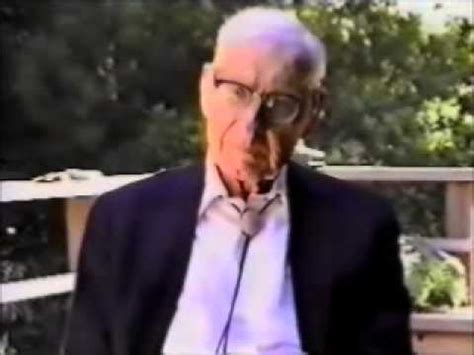A Quote by Orison Swett Marden
By constant contemplation of excellence, we clear our selfhood of all dross and impurities.
Quote Topics
Related Quotes
In order for the wheel to turn, for life to be lived, impurities are needed, and the impurities of impurities in the soil, too, as is known, if it is to be fertile. Dissension, diversity, the grain of salt and mustard are needed: Fascism does not want them, forbids them, and that's why you're not a Fascist; it wants everybody to be the same, and you are not. But immaculate virtue does not exist either, or if it exists it is detestable.
When we find that God's ways always coincide with our own ways, it's time to question who we're really worshipping, God or ourselves. The latter moves the nature of godliness from the King to our servant to a slave, a deduction into the realm of selfhood and then the lower, slavehood. It's a spiritual mathematics in that men who need God in his godhood are humble yet strong and spiritually ambitious while men who need a slave in their selfhood are ultimately paralyzed and will remain paralyzed.
When we are clear enough about our own point of view, we can find help in the methods of Eastern Christianity or in the ways of the Far East, perhaps by consulting the I Ching or through mandala contemplation; we may even find help in the ways of shamanism or Islam. If we are clear about where we stand and the direction we must take, such methods may be useful in order to follow our own way to the end.
Excellence is THE trend of the '80s. Walk into any shopping mall bookstore, go to the rack where they keep the best-sellers such as Garfield Gets Spayed, and you'll see a half-dozen books telling you how to be excellent: In Search of Excellence, Finding Excellence, Grasping Hold of Excellence, Where to Hide Your Excellence at Night So the Cleaning Personnel Don't Steal It, etc.
The desire of excellence is the necessary attribute of those who excel. We work little for a thing unless we wish for it. But we cannot of ourselves estimate the degree of our success in what we strive for; that task is left to others. With the desire for excellence comes, therefore, the desire for approbation. And this distinguishes intellectual excellence from moral excellence; for the latter has no necessity of human tribunal; it is more inclined to shrink from the public than to invite the public to be its judge.
As Aristotle said, 'Excellence is a habit.' I would say furthermore that excellence is made constant through the feeling that comes right after one has completed a work which he himself finds undeniably awe-inspiring. He only wants to relax until he's ready to renew such a feeling all over again because to him, all else has become absolutely trivial.





































